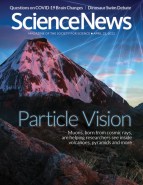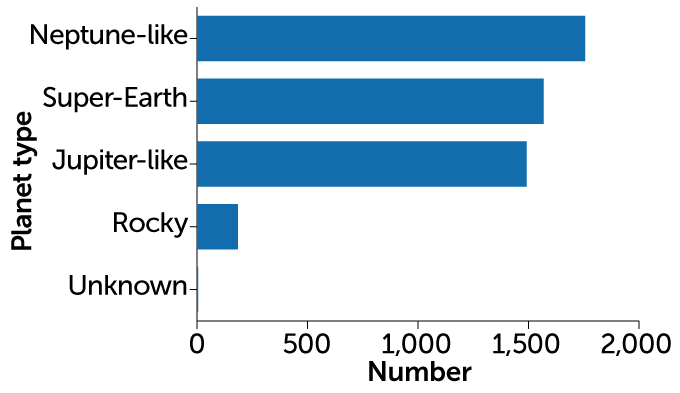Readers react to Science News' headline quiz, pesky subatomic particles and more

Particle perspectives
Scientists are tracking the movements of subatomic particles called muons to reveal the inner worlds of pyramids, volcanoes and more, Emily Conover reported in “Muons open doors” (SN: 4/23/22, p. 22).
Reader and longtime subscriber John Ewald praised Conover’s “enjoyable and detailed” reporting. “She alerted us to concepts and investigations that are honestly new to me,” Ewald wrote. “She carried us through those things with a pace that let me emerge [at the end] to say, ‘No particle like it.’ ”
Ewald also appreciated that the issue’s editor’s note gave an inside look into how the idea for Conover’s feature bloomed (SN: 4/23/22, p. 2). Editor in chief Nancy Shute wrote that physicists sometimes consider muons a nuisance because they get in the way of many experiments. But Conover noticed an exciting trend: scientists reimagining the pesky particles as useful tools for discovery. Shute “added information, so I learned from her writing too,” Ewald wrote.
A dynamic brain
A study linked COVID-19 with reduced gray matter in parts of the brain associated with the sense of smell, but it’s still unclear if the changes are harmful or permanent, Laura Sanders reported in “COVID-19 can change a person’s brain” (SN: 4/23/22, p. 8).
News coverage of the study, with headlines about brain damage and shrinkage, concerned many in the public, Sanders reported. But the brain typically transforms throughout life — including during adolescence and pregnancy — and those changes are not necessarily a cause for alarm. Some readers were relieved to learn that the brain is not so static. “The fact that the brain is constantly changing shape due to various stimuli makes me feel less worried about COVID changes,” Facebook user Bel Vedere wrote. “It would certainly be interesting to see the long-term follow-up to these studies.”
The story also eased the mind of reader Lynne Mullins. After seeing some alarming coverage of the study’s results, “it is reassuring that answers won’t be available for a while,” Mullins wrote.
Above and beyond
NASA’s tally of known planets beyond our solar system reached a new milestone, Liz Kruesi reported in “NASA’s exoplanet count tops 5,000” (SN: 4/23/22, p. 5). Of the confirmed exoplanets as of March 31, those the size of Neptune are the most common (see graph below). Twitter user @Steve9thCircle quipped: “Sounds like classic Nep(o)tunism to me.”
Breakdown of confirmed exoplanets by type

Online corner
As part of Science News’ centennial celebration, we created a quiz to test our readers’ knowledge of 100 years of science stories. The quiz, posted on our website in late April, asked people to guess when in the last century 15 headlines were published.
An article featured in the quiz, “The Earth is a soup-kettle,” was published in (spoiler alert!) 1932 and reported on geologist Arthur Holmes’ idea for how continents could float atop “boiling” rock (SN: 9/10/32, p. 162). At the time, the theory of plate tectonics did not yet exist. Reader Martin Kappeyne asked why the piece didn’t reference meteorologist Alfred Wegener’s continental drift theory, which dates back to 1912.
That story, written by Frank Thone, “focused primarily on the question of Earth losing heat — and not the idea of continental drift,” says special projects editor Elizabeth Quill.
But Thone did slip in a mention of the theory: “Thus are mountain folds thrown up on the edge of continents, Prof. Holmes thinks; for he is one of those geologists who believe in the theory of shifting and migrating continents, most notably advocated by the great German scientist, von Wegener.”
Quill doesn’t claim to know what was going on in Thone’s mind, “and his coverage choices probably had a lot to do with what was occupying the attention of scientists in his circle at that snapshot in time,” she says. “But the lack of emphasis on continental drift might have something to do with how contentious the idea was.” In a look back at the emergence of plate tectonics as a unifying theory, Carolyn Gramling reported that debates between “mobilists” who supported continental drift and “fixists” who opposed it were raging in the 1920s. In the next decades, many geologists turned their attention to other matters until interest in the idea rekindled in the 1950s, when new data surfaced from the bottom of the oceans (SN: 1/16/21, p. 16).
Online readers scored an average of 7.8 out of 15 on the headline quiz.